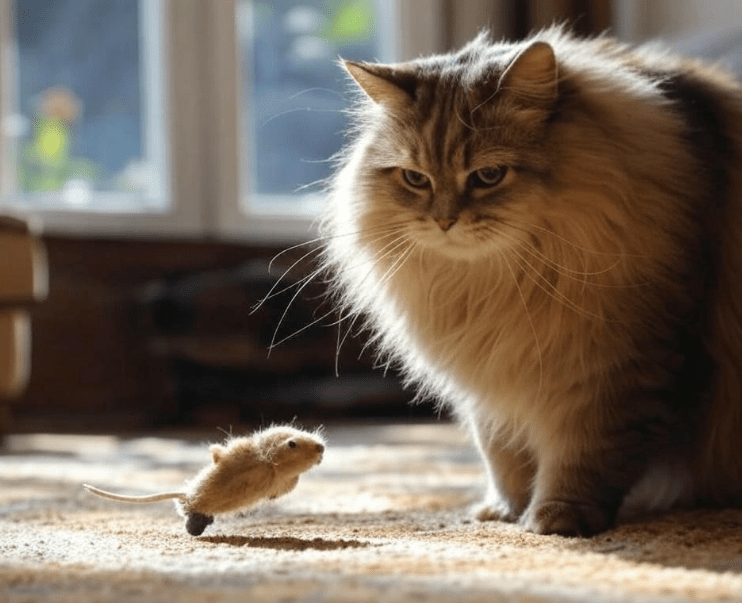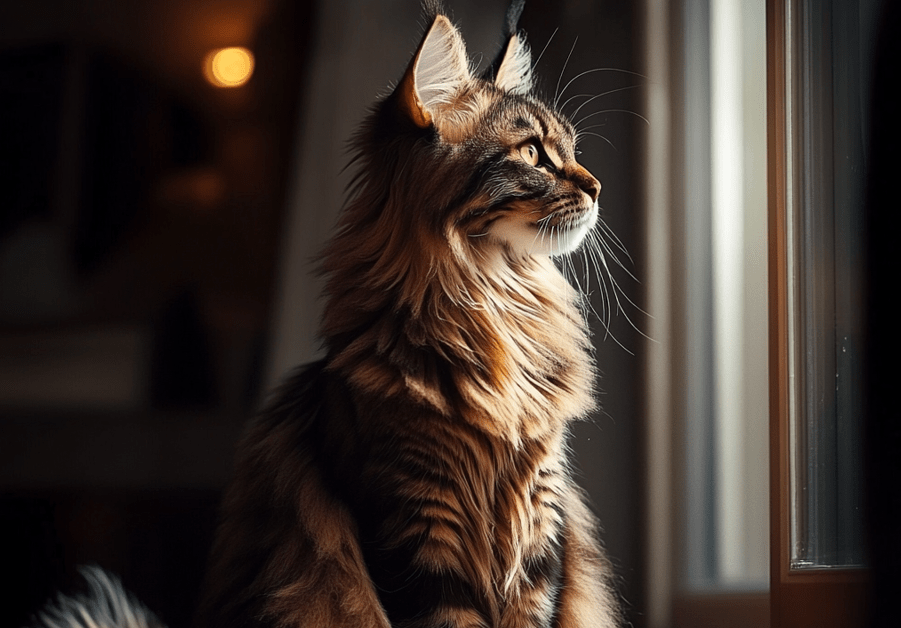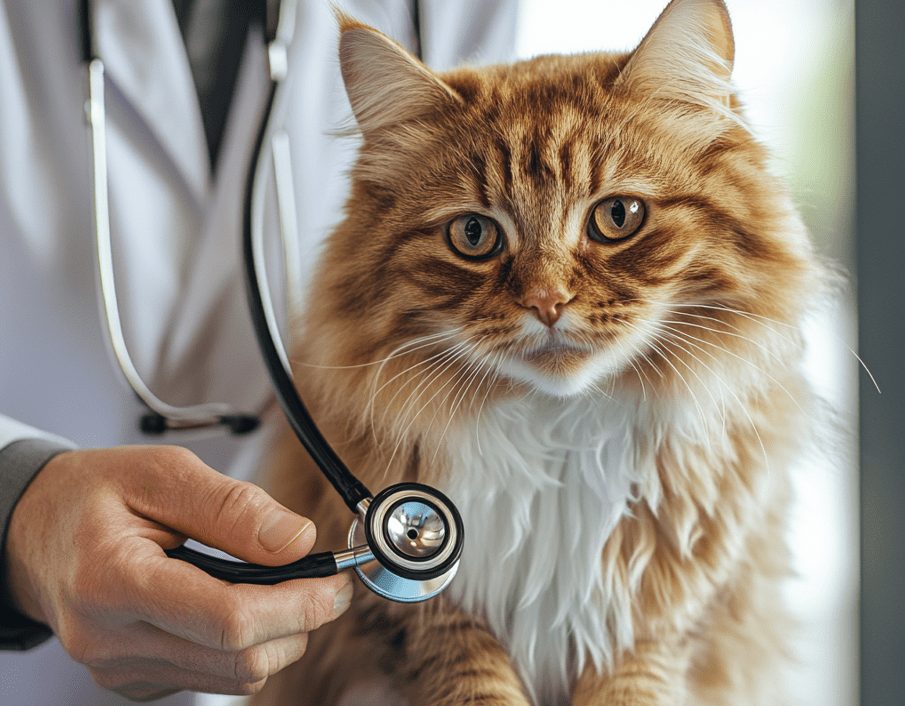
Maine Coon cats, with their majestic appearance, friendly personalities, and luxurious coats, are among the most beloved cat breeds worldwide. Known for their large size, tufted ears, and bushy tails, these gentle giants often capture the hearts of cat lovers. However, one question frequently arises: Are Maine Coon cats hypoallergenic? For those with pet allergies, understanding Maine Coon allergies is crucial before welcoming one into their home. This article dives deep into the truth about Maine Coon allergies, exploring whether they are truly hypoallergenic, what causes allergic reactions, and how to manage them effectively.
Understanding Maine Coon Allergies: The Basics
To address whether Maine Coons are hypoallergenic, we first need to clarify what “hypoallergenic” means. The term refers to breeds that are less likely to trigger allergic reactions in sensitive individuals. However, no cat is entirely allergen-free. Maine Coon allergies, like those caused by other breeds, are primarily triggered by a protein called Fel d 1, found in cat saliva, skin, and urine. When cats groom themselves, this protein spreads to their fur and dander (tiny skin flakes), which can become airborne and cause allergic reactions.
Maine Coons are not considered hypoallergenic because they produce Fel d 1 just like other cats. Their long, dense coats may even trap more dander, potentially increasing allergen exposure. However, individual reactions vary, and some people with mild allergies report fewer symptoms around Maine Coons compared to other breeds. This could be due to differences in grooming habits, coat maintenance, or even the cat’s environment.
Key Points About Maine Coon Allergies
Allergen Source: Fel d 1 protein in saliva, skin, and urine.
Coat Impact: Long fur may trap dander, potentially worsening allergies.
Individual Variation: Allergic reactions depend on the person’s sensitivity and the cat’s allergen production.
Are Maine Coons Hypoallergenic? Debunking the Myth
The idea that Maine Coons are hypoallergenic likely stems from their unique coat and friendly demeanor, which may lead some to believe they’re less likely to cause reactions. However, scientific evidence does not support this claim. Studies on cat allergens, including Fel d 1, show that all breeds produce this protein, and Maine Coons are no exception. Their large size and thick fur can make them seem like they shed less, but shedding and dander production are not directly correlated with allergen levels.
Some anecdotal reports suggest that Maine Coons may cause fewer allergic reactions in certain individuals. This could be due to:
Lower Fel d 1 Production: Some Maine Coons may naturally produce less of the allergen, though this varies by individual cat.
Grooming Habits: Maine Coons are meticulous groomers, which might reduce loose dander in some cases.
Owner Maintenance: Regular grooming and home cleaning can minimize allergen spread.
Despite these factors, Maine Coons are not inherently hypoallergenic. If you’re considering adopting a Maine Coon and have allergies, it’s essential to spend time with the cat beforehand to gauge your reaction.
What Causes Allergic Reactions to Maine Coons?
Allergic reactions to Maine Coons are caused by exposure to Fel d 1 and, in some cases, other allergens like pollen or dust trapped in their fur. When you pet a Maine Coon or spend time in a room where they’ve been, you may inhale dander or come into contact with allergens on surfaces. Common symptoms of Maine Coon allergies include:
-
Sneezing or runny nose
-
Itchy, watery eyes
-
Skin rashes or hives
-
Asthma flare-ups (in severe cases)
Factors That Influence Allergic Reactions
Cat’s Gender: Male cats, especially unneutered ones, tend to produce more Fel d 1 than females or neutered males.
Environment: Poorly ventilated homes or spaces with accumulated dander can worsen symptoms.
Owner Sensitivity: The severity of allergies varies from person to person, with some experiencing mild discomfort and others facing significant reactions.
Grooming and Shedding: While Maine Coons don’t shed excessively compared to other long-haired breeds, their fur can still carry allergens.

Managing Maine Coon Allergies: Practical Tips
If you love Maine Coons but suffer from allergies, don’t despair. There are several strategies to reduce allergen exposure and enjoy life with your feline friend. Below are actionable tips to manage Maine Coon allergies effectively:
1. Regular Grooming
Maine Coons have long, water-repellent coats that require consistent grooming to prevent matting and reduce dander. Brush your cat 2–3 times a week with a high-quality pet brush to remove loose fur and dander. Bathing your Maine Coon every 4–6 weeks with a hypoallergenic pet shampoo can also help wash away allergens. Be sure to use products recommended by your veterinarian to avoid skin irritation.
Pro Tip: Wear a mask while grooming to minimize inhaling dander, and wash your hands and face afterward.
2. Maintain a Clean Home Environment
Keeping your home free of allergens is critical. Here are some cleaning tips:
Vacuum Regularly: Use a vacuum with a HEPA filter to trap pet dander and allergens.
Wash Bedding: Clean your cat’s bedding, blankets, and your own linens weekly in hot water.
Use Air Purifiers: Place HEPA air purifiers in rooms where your Maine Coon spends the most time.
Limit Carpets: Opt for hardwood or tile floors, as carpets can trap dander.
3. Create Allergen-Free Zones
Designate certain areas, like your bedroom, as cat-free zones to reduce nighttime allergen exposure. Use allergen-proof mattress and pillow covers to further protect your sleeping space.
4. Consult an Allergist
If your allergies are severe, consult an allergist for personalized advice. They may recommend:
Allergy Medications: Over-the-counter antihistamines, nasal sprays, or eye drops can alleviate symptoms.
Immunotherapy: Allergy shots or sublingual tablets can desensitize your immune system to cat allergens over time.
Testing: Allergy tests can confirm whether you’re reacting to Fel d 1 or other environmental allergens.
5. Monitor Your Maine Coon’s Health
A healthy cat is less likely to produce excessive dander. Ensure your Maine Coon is on a balanced diet, receives regular vet checkups, and stays hydrated to maintain healthy skin and coat. Neutering male cats can also reduce Fel d 1 production.
6. Spend Time with a Maine Coon Before Adopting
Before bringing a Maine Coon home, spend time with the cat to assess your allergic response. Visit a breeder, shelter, or friend with a Maine Coon and note any symptoms. If possible, interact with the specific cat you’re considering adopting, as allergen production varies between individuals.
Comparing Maine Coons to Other Breeds
While Maine Coons are not hypoallergenic, how do they stack up against breeds often marketed as low-allergen, such as Siberians or Balinese? Here’s a quick comparison:
Siberian: Often considered one of the most hypoallergenic breeds, Siberians produce lower levels of Fel d 1 in some cases. However, this varies by cat.

Balinese: Despite their long coats, Balinese cats may produce less dander due to their single-layer coat, making them a better choice for some allergy sufferers.
Sphynx: Hairless breeds like the Sphynx produce less dander but still generate Fel d 1 through saliva and skin.
Maine Coons, with their double-layered coats, may pose a higher allergy risk than these breeds. However, proper care and allergen management can make living with a Maine Coon feasible for many allergy sufferers.
The Role of Diet in Reducing Allergens
A Maine Coon’s diet can indirectly influence allergen production. High-quality, protein-rich foods support healthy skin and coat, reducing excessive dander. Omega-3 fatty acids, found in fish oil supplements or certain cat foods, can promote skin health and minimize flaking. Consult your veterinarian before making dietary changes to ensure your cat’s nutritional needs are met.
Common Misconceptions About Maine Coon Allergies
There are several myths surrounding Maine Coon allergies that can mislead potential owners. Let’s debunk a few:
Myth 1: Maine Coons Don’t Shed: While they shed less than some breeds, Maine Coons still shed, especially during seasonal changes.
Myth 2: Long-Haired Cats Are Always Worse for Allergies: Coat length doesn’t directly correlate with allergen production. Short-haired breeds can cause just as many reactions.
Myth 3: All Maine Coons Cause Allergies: Reactions vary by individual cat and person. Some allergy sufferers tolerate Maine Coons well.
Living with a Maine Coon
Many allergy sufferers successfully live with Maine Coons by implementing the strategies above. For example, Sarah, a Maine Coon owner from California, manages her mild allergies with weekly grooming, air purifiers, and antihistamines. “I was worried I’d have to give up my dream of owning a Maine Coon,” she says, “but with a few adjustments, I barely notice my symptoms.”
Similarly, John, a cat enthusiast with asthma, found that keeping his Maine Coon’s environment clean and using allergy shots allowed him to enjoy his pet without flare-ups. These stories highlight that with dedication, living with a Maine Coon is possible for many allergy sufferers.
When to Reconsider Owning a Maine Coon
While many people can manage Maine Coon allergies, there are cases where rehoming may be the best option. If you experience severe symptoms like persistent asthma attacks or chronic skin reactions despite mitigation efforts, consult your doctor. Your health comes first, and there are other ways to enjoy cats, such as volunteering at a shelter or fostering hypoallergenic breeds.
Conclusion: Are Maine Coons Right for You?

Maine Coon cats are not hypoallergenic, but their allure as loving, intelligent, and charismatic pets makes them worth considering, even for allergy sufferers. By understanding the causes of Maine Coon allergies and implementing practical management strategies, many people can enjoy life with these majestic cats. Regular grooming, a clean home, and medical support can go a long way in reducing symptoms.
If you’re considering a Maine Coon, take the time to assess your allergies, consult professionals, and prepare your home. With the right approach, you can build a rewarding bond with your Maine Coon while keeping allergies at bay.
For more information on Maine Coon care or to explore hypoallergenic breeds, consult your veterinarian or a reputable breeder. Your journey to cat ownership can be a success with the right knowledge and preparation.




